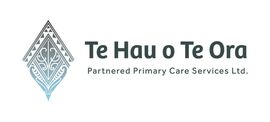Today
Description
Te Hau o Te Ora is a joint venture between WellSouth Primary Health Network, Hokonui Rūnanga and Awarua Whānau Services. We deliver primary care services similar to those delivered by general practice and mana whenua mandated Māori health providers.
Our services include General Practitioner via Telehealth and Virtual consultation, Nurse led services, Health Improvement Practitioner and a Health Coach. We work closely with our joint venture partners to ensure that our patients receive access to all support that we are able to collectively provide.
We are a Very Low Cost Access service.
Staff
General Manager: Ali Wilden
Service Manager: Bob Glassey
Doctors: Virtual Health and Telehealth Services available
Nurse Practitioner: Kirsty
Nursing Staff: Kate and Avon
Receptionists: Cherie and Carla
Health Improvement Practitioner: Liz
Kaiawhina Health Coach: Melissa
Ages
Child / Tamariki, Youth / Rangatahi, Adult / Pakeke, Older adult / Kaumātua
How do I access this service?
Contact us
Phone: (03) 214 0040
Make an appointment
Phone: (03) 214 0040
Enrolled patients
Enrolling new patients
Yes
This practice is enrolling new patients.
Fees
Enrolled Patient Fees
| Under 14 years | Free |
|---|---|
| 14-17 years | $13.00 |
| 18-24 years | $19.50 |
| 25-44 years | $19.50 |
| 45-64 years | $19.50 |
| 65+ years | $19.50 |
Fees and Charges Categorisation
Fees apply, Partial fees apply
Hours
| Mon – Fri | 8:45 AM – 5:00 PM |
|---|
After Hours:
Phone our main number and you will be transferred to an after hours service who will triage you and provide the next steps.
After hours: We partner with Practice Plus to provide same day virtual GP appointments for enrolled patients, as an extension of our regular medical centre team. Practice Plus is available weekdays until 10pm and weekends/public holidays 8am-8pm.
To access our afterhours service phone 03 214 0040 to be automatically connected.
Click here to find out more and to register/book an appointment.
Public Holidays: Closed ANZAC Day (25 Apr), King's Birthday (3 Jun), Matariki (28 Jun), Labour Day (28 Oct), Waitangi Day (6 Feb), Good Friday (18 Apr), Easter Sunday (20 Apr), Easter Monday (21 Apr).
Languages Spoken
English
Services Provided
Immunisation is the safest and most effective way to provide protection for you and your tamariki’s health. For more information view the NZ immunisation schedule.
Immunisation is the safest and most effective way to provide protection for you and your tamariki’s health. For more information view the NZ immunisation schedule.
- Pregnancy vaccinations
- Childhood immunisation programme
- 45 year old vaccinations
- 65 year old vaccinations
- Adult flu vaccine
- Child flu vaccine
- Diphtheria / Tetanus / Pertussis (whooping cough) vaccine
- Human Papillomavirus (HPV) vaccine
- Measles / Mumps / Rubella (MMR) vaccine
- Meningococcal vaccine
- Shingles vaccine
Immunisation is the safest and most effective way to provide protection for you and your tamariki’s health. For more information view the NZ immunisation schedule.
Your GP's surgery is far more than a place to go when you are feeling unwell and needing a quick cure. The doctor who sees you has gone through an extensive medical training to equip her or him to help children and adults of all ages with a range of physical and emotional difficulties. GPs are at the centre of the healthcare hub and will be aware of services and expertise that are available locally and further-a-field. GPs are also aware of the link that stress and unhappy life events have on physical health so know when to suggest a talking therapy rather than medication.
Your GP's surgery is far more than a place to go when you are feeling unwell and needing a quick cure. The doctor who sees you has gone through an extensive medical training to equip her or him to help children and adults of all ages with a range of physical and emotional difficulties. GPs are at the centre of the healthcare hub and will be aware of services and expertise that are available locally and further-a-field. GPs are also aware of the link that stress and unhappy life events have on physical health so know when to suggest a talking therapy rather than medication.
Your GP's surgery is far more than a place to go when you are feeling unwell and needing a quick cure. The doctor who sees you has gone through an extensive medical training to equip her or him to help children and adults of all ages with a range of physical and emotional difficulties. GPs are at the centre of the healthcare hub and will be aware of services and expertise that are available locally and further-a-field. GPs are also aware of the link that stress and unhappy life events have on physical health so know when to suggest a talking therapy rather than medication.
An ECG is a recording of your heart's electrical activity. Electrode patches are attached to your skin to measure the electrical impulses given off by your heart. The result is a trace that can be read by a doctor. It can give information of previous heart attacks or problems with the heart rhythm.
An ECG is a recording of your heart's electrical activity. Electrode patches are attached to your skin to measure the electrical impulses given off by your heart. The result is a trace that can be read by a doctor. It can give information of previous heart attacks or problems with the heart rhythm.
An ECG is a recording of your heart's electrical activity. Electrode patches are attached to your skin to measure the electrical impulses given off by your heart. The result is a trace that can be read by a doctor. It can give information of previous heart attacks or problems with the heart rhythm.
Each GP surgery or primary care practice will have its own procedure for repeat prescribing but the following rules are common to most, if not all. Patients who are well-known to the practice who have a stable condition like asthma, hypertension or diabetes could be allowed to get a repeat prescription for up to six months. Repeat prescriptions are never given to patients who are not known to the practice and there is probably a blanket ban on repeats for narcotics and other drugs that could be misused as doctors are expected to monitor these drugs carefully.
Each GP surgery or primary care practice will have its own procedure for repeat prescribing but the following rules are common to most, if not all. Patients who are well-known to the practice who have a stable condition like asthma, hypertension or diabetes could be allowed to get a repeat prescription for up to six months. Repeat prescriptions are never given to patients who are not known to the practice and there is probably a blanket ban on repeats for narcotics and other drugs that could be misused as doctors are expected to monitor these drugs carefully.
Each GP surgery or primary care practice will have its own procedure for repeat prescribing but the following rules are common to most, if not all. Patients who are well-known to the practice who have a stable condition like asthma, hypertension or diabetes could be allowed to get a repeat prescription for up to six months. Repeat prescriptions are never given to patients who are not known to the practice and there is probably a blanket ban on repeats for narcotics and other drugs that could be misused as doctors are expected to monitor these drugs carefully.
A virtual consultation is a way of having an appointment with your healthcare provider, but not in person. This is usually done via a video app or a phone call. For more detailed information about telehealth consultations, please see the guide from Healthify.
A virtual consultation is a way of having an appointment with your healthcare provider, but not in person. This is usually done via a video app or a phone call. For more detailed information about telehealth consultations, please see the guide from Healthify.
- In person consultation preferred, but virtual consultation provided as required
A virtual consultation is a way of having an appointment with your healthcare provider, but not in person. This is usually done via a video app or a phone call. For more detailed information about telehealth consultations, please see the guide from Healthify.
Disability Assistance
Wheelchair access, A longer appointment time, Support to make decisions, Assistance to move around, More space to move around
Parking
Car parking is available off street, turn left from Clyde Street into the WellSouth carpark. We have two disability parking spaces. Additional (metered) carparking is available on the street.

Contact Details
40 Clyde Street, Invercargill
Southland
-
Phone
(03) 214 0040
Healthlink EDI
tehauivc
Email
40 Clyde Street
Invercargill
Southland 9810
Street Address
40 Clyde Street
Invercargill
Southland 9810
Postal Address
Te Hau o Te Ora, Partnered Primary Care Services Limited
PO Box 649
Invercargill
Southland 9840
Was this page helpful?
This page was last updated at 10:31AM on April 2, 2024. This information is reviewed and edited by Te Hau o Te Ora.
